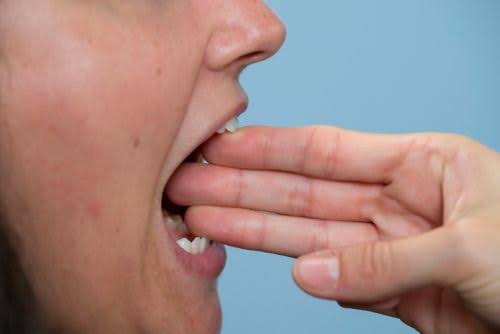Felt like something was hindering you from closing your mouth ?
That might be more than just a sore jaw—it could be trismus.
What Is Trismus?
Trismus, commonly known as lockjaw, is a condition where the jaw muscles spasm or stiffen, making it difficult or impossible to open the mouth fully. In many cases, it’s temporary, but if left untreated, it can lead to serious complications, including difficulty eating, speaking, and maintaining oral hygiene.
The normal range for mouth opening is about 35 to 45 mm (roughly the width of three fingers stacked vertically). If someone can open their mouth less than 35 mm, they may be diagnosed with trismus.
Causes of Trismus
Trismus isn’t a disease itself—it’s a symptom of an underlying issue. Some of the most common causes include:
1. Dental Issues
• Impacted wisdom teeth
• Tooth or jaw infections
• Dental procedures involving the back of the mouth
2. Trauma or Injury
• Fractures or dislocations of the jaw
• Post-surgical scarr Ting (especially after oral or head/neck surgery)
3.Temporomandibular Joint Disorders (TMJ/TMD)
• Disorders affecting the jaw joint and surrounding muscles
4. Radiation Therapy
• Patients undergoing radiation for head and neck cancer may experience trismus due to fibrosis (tightening) of jaw muscles
5. Infections
• Tetanus is a classic cause of severe trismus (hence the term “lockjaw”)
• Deep neck space infections or abscesses
6. Neurological or Muscular Disorders
• Conditions like Parkinson’s disease or strokes that affect muscle control
________________________________________
Treatment of Trismus
The right treatment depends on the cause and severity. Here are some commonly recommended approaches:
1. Medication
• Anti-inflammatory drugs (NSAIDs) for pain and swelling
• Muscle relaxants to reduce spasms
• Antibiotics if an infection is present
2. Physical Therapy
• Jaw-stretching exercises
• Devices like the TheraBite or Dynasplint to gently stretch jaw muscles over time
3. Heat Therapy
• Warm compresses to relax the jaw muscles
4. Surgical Intervention
• In severe cases, surgery may be necessary to release scar tissue or address structural issues
5. Lifestyle and Home Care
• Avoiding chewing gum or hard foods
• Practicing relaxation techniques to reduce jaw clenching
CONCLUSION
Trismus might start as a minor inconvenience, but it can escalate quickly if ignored. Whether it’s triggered by dental work, radiation therapy, or an underlying medical condition, early diagnosis and treatment can make a huge difference.
If you’re experiencing persistent jaw stiffness or limited mouth opening, consult a healthcare professional to determine the cause and get the right treatment plan.

